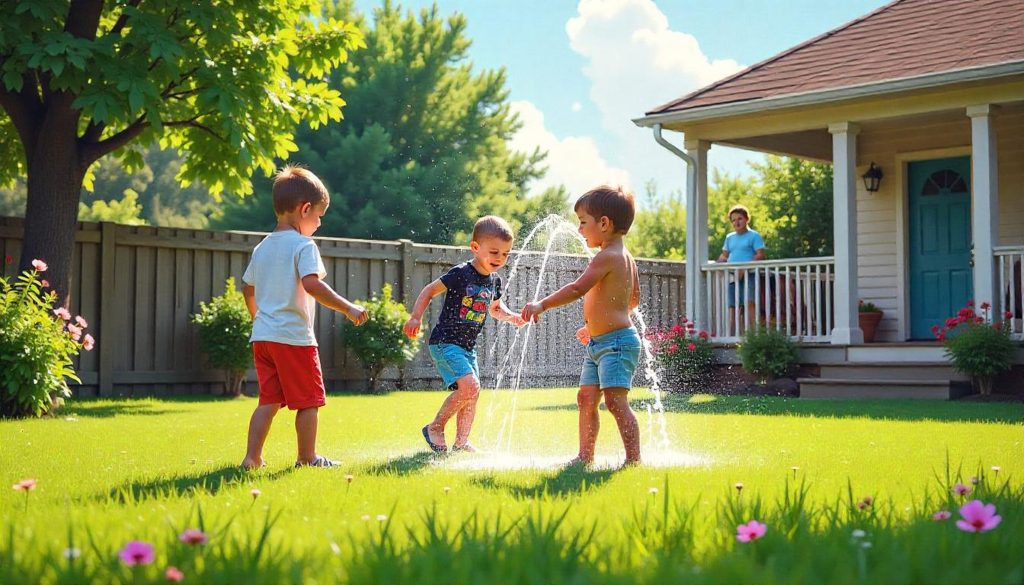If your kids instinctively call for you when they’re hurt, hungry, or just bored—even when another capable adult is right there—you’re not imagining things. For many families, moms are the default parent by default, not necessarily by choice. It’s the role of scheduler, snack-maker, appointment-rememberer, and emotional safety net all rolled into one. While being the go-to parent comes with its moments of connection, it also comes with burnout, resentment, and an overwhelming mental load. Let’s delve into the default parent meaning and what you can do to change the dynamic in your home.
It Starts with Gender Norms (Even Today)
Many moms become the default parent because of longstanding social expectations. From the moment a baby is born, mothers are often assumed to be the primary caregiver, while dads are cast as “helpers.” These outdated roles still creep into modern family dynamics, even among couples who view themselves as equals. Subtle messages from media, family, and even pediatricians can reinforce the idea that mom always knows best. Breaking away from those assumptions means challenging both cultural habits and personal routines.
Maternity Leave Often Sets the Tone
In many households, maternity leave gives moms an early head start in parenting—and that can unintentionally create a long-term imbalance. Since moms are often the ones home during the newborn stage, they naturally become the experts on naps, bottles, and baby cues. Even when both parents are equally willing, one ends up being the “point person” because of the sheer time spent. If paternity leave is short or nonexistent, dads may get less experience early on, which affects long-term confidence. Encouraging equal hands-on parenting from day one helps prevent the default parent trap from forming.
Kids Follow the Familiar Pattern
Children tend to go to the parent who has handled the bulk of their care in the past. If mom is usually the one who solves problems, they’ll naturally seek her out first. This doesn’t mean the other parent isn’t capable—it just means kids go with what feels routine. Without intentional changes, that pattern becomes a default setting, where mom’s presence is expected and the other parent becomes “backup.” Changing this means both parents need to consciously take on new roles and responsibilities consistently.
Moms Often Carry the Mental Load
Being the default parent isn’t just about physical tasks—it’s about constantly anticipating needs. Moms are more likely to know when the next dentist appointment is, when the next school project is due, and what’s running low in the fridge. This mental load is invisible, but it’s exhausting. Sharing it requires more than sharing chores; it means sharing the planning, remembering, and emotional labor, too. True parenting equality happens when both partners share the burden of thinking, not just doing.
Asking for Help Feels Like More Work
Many moms don’t delegate parenting tasks because explaining the details feels harder than just doing it themselves. Saying, “Can you put the kids to bed?” can turn into micromanaging bedtime steps, snacks, and pajamas. Over time, this dynamic can lead to resentment and exhaustion. Letting go of control (and accepting that different doesn’t mean wrong) allows room for real partnership. Shifting from default parent to shared parenthood means embracing help, even if it looks a little different.
Society Praises “Supermoms” (and Shames Everyone Else)
There’s a cultural badge of honor tied to being a mom who does it all—but it’s a trap. Moms are applauded for juggling everything with grace, while dads are praised for doing the bare minimum. This double standard makes it hard to ask for support without feeling guilty or judged. But parenting shouldn’t be a one-woman show, and redefining success means recognizing that shared responsibility is a strength, not a failure. Let go of the supermom myth and give yourself permission to expect more balance.
Fathers Need Room to Step Up
In many families, dads want to be involved but feel unsure about stepping in or are unintentionally sidelined. The default parent role won’t shift until fathers are given equal opportunity—and accountability—to show up. That might mean making space for dads to take the lead on school pickups, meal planning, or weekend routines. Confidence grows with experience, and consistency turns “helpers” into full partners. It’s not about demanding help, but about sharing ownership of the family workload.
Change Requires Honest Communication
You can’t change the default parent role without open, ongoing conversations. That means talking about what’s working, what’s not, and what needs to shift. It might feel awkward at first, especially if these roles have gone unspoken for years. But creating a more equal parenting partnership requires clarity, teamwork, and a shared vision of what family life should look like. Start small, stay honest, and check in often.
Kids Can Learn to Expect More from Both Parents
When both parents take on visible, consistent roles, kids adjust their expectations. Teaching children to go to either parent for help, comfort, or answers creates a more balanced household. This not only lightens mom’s load but helps children form strong, secure relationships with both parents. It also models healthy dynamics for future generations. Shifting the default parent role helps everyone in the family feel more supported.
You Deserve a Break Too
Being the default parent doesn’t make you a better parent—it just makes you more tired. Rest, personal time, and mental space are not luxuries. They are necessary parts of being a healthy, present caregiver. Creating space for yourself isn’t selfish; it’s a long-term investment in your well-being and your family’s happiness. It’s time to reclaim some balance and remind yourself that you’re allowed to be supported, too.
Here are some things you can do to ensure you don’t feel like the default parent (and better yet, don’t become one). These are real tips from parents on Reddit:
- Make a chore list that both you and your partner agree to (make sure it includes things like bill paying and other “unseen” tasks)
- Define your standards (for instance, everyone has a different definition of a “clean” bathroom)
- Both people need to be held accountable for their responsibilities
- Try setting days off for each one of you (mom gets to sleep in and have the “day off” on Sunday, and dad takes Saturday “off”)
- You could also try setting up shifts (this is especially helpful in the newborn stage)
- Do things together (for example, you wash dishes, your partner dries them)
When Parenting Becomes a Team Effort
The default parent role is deeply ingrained, but it doesn’t have to be permanent. With communication, shared responsibility, and a commitment to equality, parenting can become a true partnership. Letting go of the guilt and asking for help isn’t a weakness—it’s the beginning of a healthier, more sustainable way to parent. Because no one should carry the whole load alone.
Have you experienced being the default parent? What has helped you share the load in your home? Share your story in the comments below!
What to Read Next
- Dads Are Tired of Being the “Backup Parent” – And They’re Speaking Out
- 9 “Teachable Moments” That Often Turn Into Parent Regrets
- 9 Differences in How Millennial Moms and Dads Discipline
- 10 Baby Shower Traditions That New Moms Secretly Hate
- 5 Harsh Truths About Being the Only Parent Who Sets Rules
Catherine is a tech-savvy writer who has focused on the personal finance space for more than eight years. She has a Bachelor’s in Information Technology and enjoys showcasing how tech can simplify everyday personal finance tasks like budgeting, spending tracking, and planning for the future. Additionally, she’s explored the ins and outs of the world of side hustles and loves to share what she’s learned along the way. When she’s not working, you can find her relaxing at home in the Pacific Northwest with her two cats or enjoying a cup of coffee at her neighborhood cafe.









